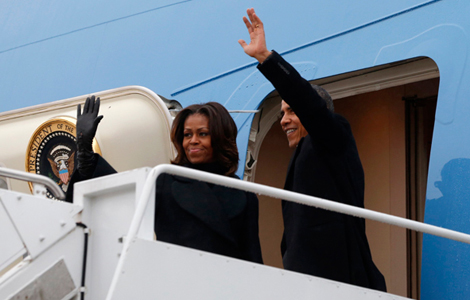

DIFFERENT NATIONAL DEBATES
Some of those principles, such as free trade, have broad support in most of the 28 European Union countries, while others, such as increasing immigration or reducing job protection, are widely disputed.
"The EU is a patchwork of different national debates. The French national debate leans more than others towards protectionism," said European Commission Vice-President Olli Rehn, a contender for the Liberal group's nomination to head the EU executive next year.
"I'm a free trader since it has been a key source of growth and prosperity for Europeans. I know there are different views in many parts of Europe, but a majority of European people are more for free trade than for protection," he said.
The European credo is resolutely post-national, based on an assumption that ever fewer problems can be solved nationally given globalized supply chains and cross-border problems such as pollution, climate change, resource shortages and migration.
But critics say it takes too little account of the losers that EU free market policies create, as well as the wider circle of people who fear they could become losers.
In Germany, the EU's economic powerhouse, a major concern surrounds preserving parliamentary budget sovereignty amid fears of a "transfer union" that would hand over hard-earned taxpayers' money to profligate European partners.
Issues of migration are high on many Europeans' worry list, though not always for the same reasons.







